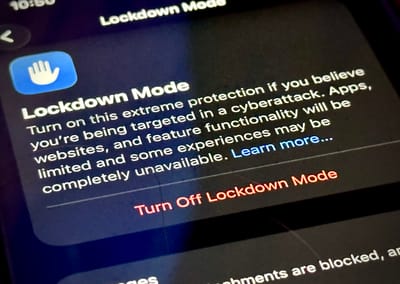It's far too easy to find leaked passports and driver's licenses online

On several occasions this year, my computer screen has filled up with literally tens of thousands of people's passports and driver's licenses. My job doesn't require me to handle or process these documents, and — before you ask — I'm not a hacker who's broken in somewhere to access them.
But thanks to shoddy cybersecurity and sloppy coding, oftentimes these sensitive government-issued documents are simply left exposed to the open web for anyone to find. Sometimes I find them, sometimes they find me.
Case in point: A cloud storage server containing some 223,000 government-issued IDs was secured this week after the data was left publicly exposed for an unknown amount of time, likely due to a misconfiguration caused by human error. This meant that reams of passport scans were publicly accessible to anyone on the internet who knew where to look — an easily guessable web address was all you needed, no passwords necessary.
Anurag Sen, an independent security researcher I've known for many years, reached out to me after finding the cloud server earlier this month packed with passports and driver's licenses from around the world. Sen's speciality is finding data online that shouldn't be there. Exposed data can include highly sensitive information, like U.S. military emails and online tracking data by powerful advertising giants, through to the personally identifiable data of regular people. Sen works tirelessly to get the data reported to its owner so it can be secured. On the rare occasion Sen can't figure it out or gets no response, he may reach out to me and we'll try to identify and contact the source of the spill together.
After several days of looking at this cache of exposed passports and driver's licenses, we were both stumped. We couldn't figure out who the customer was, and it wasn't even clear for what purpose the IDs were being stored to begin with. We were left with few options, except to contact the web hosting company storing the customer's data and hope for the best.
This is just the latest in a long list of many involving exposed government-issued IDs.
~this week in security~ is my weekly cybersecurity newsletter supported by readers like you. Please consider signing-up for a paying subscription starting at $10/month for exclusive articles, analysis, and more.
In January, I reported on a similar data breach containing the scans of more than 200,000 driver's licenses, selfies, and other identity documents belonging to customers of an online gift card store. Then, some months later in August, I found a really simple security flaw in the newly launched but popular app called TeaOnHer that allowed anyone to download the IDs of users who had to submit a copy before they could use the app. The bug was so easy to discover that I found it within just 10 minutes of learning of the app. I would be amazed if someone else hadn't found the bug first.
And that's not to forget other major spills that haven't been in my personal orbit. You may have heard of a few: Tea, the original app that preceded TeaOnHer, exposed thousands of its users' IDs, which were subsequently shared on the notorious forum 4chan soon after the app's launch. Discord had a data breach of a customer support system involving its trust and safety team, which handles requests and appeals related to age-verification. Car rental giant Hertz disclosed a breach of driver's license data earlier this year, as did crypto exchange giant Coinbase.
Clearly we have a problem.
Nowadays, we can be asked multiple times during our regular daily lives to hand over our IDs, or upload a copy to the internet for, well, reasons. From booking an appointment with your doctor online to picking up mail at your local post office, providing a copy of your passport or driver's license for some kind of service has become the new normal, and in some cases you can't easily opt out. "It's policy," they might say, and that's that.
It's also increasingly necessary to hand over your ID for an even broader set of reasons. Age verification laws around the U.S., parts of Europe, and beyond, require adults to upload a copy of their ID before they can be allowed to access a website or use certain website features, like direct messaging. Plus, there has been an increase in the number of closed communities, such as apps Tea and TeaOnHer, which rely on screening their users by digitally checking their government-issued IDs before allowing them in.
Yet, companies and app developers are not keeping the data they collect safe, and are contributing to the ever-expanding pool of exposed IDs on the internet.
The irony is that by exposing so many driver's licenses and passports, it's making it easier for anyone to use those IDs for fraudulent purposes. That might be someone with the malicious intent to do a little cybercrime, or some hapless kid trying to trick an age verification system into allowing them to access an adult website.
The good news — if there is any — is that the server spilling 223,000 driver's licenses to the web is now secured, thanks to Sen's data breach hunting skills. After I contacted DigitalOcean to alert them that one of their customers was leaking data, the data was secured soon after.
Without knowing who the customer is, that still leaves hundreds of thousands of people potentially unaware that their personal information was spilled, a responsibility that rests squarely with the customer who exposed the data to the web.
In the end, it really shouldn't be this easy to find driver's licenses and passports online.
Thank you so much for reading ~this week in security~! Please reach out with any feedback, questions, or comments about this article: this@weekinsecurity.com.




